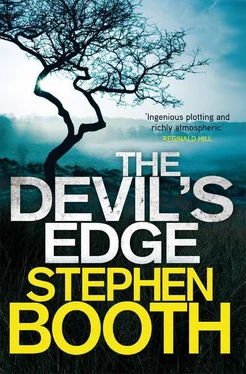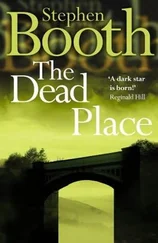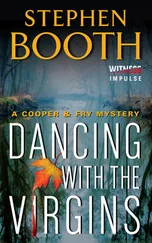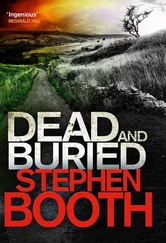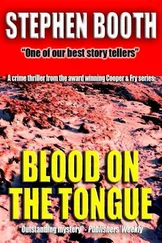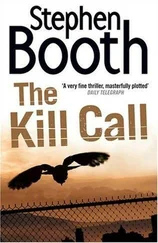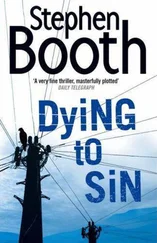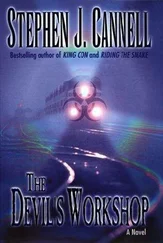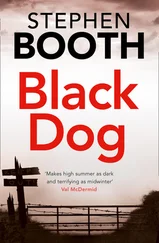Stephen Booth - The Devil’s Edge
Здесь есть возможность читать онлайн «Stephen Booth - The Devil’s Edge» весь текст электронной книги совершенно бесплатно (целиком полную версию без сокращений). В некоторых случаях можно слушать аудио, скачать через торрент в формате fb2 и присутствует краткое содержание. Жанр: Полицейский детектив, на английском языке. Описание произведения, (предисловие) а так же отзывы посетителей доступны на портале библиотеки ЛибКат.
- Название:The Devil’s Edge
- Автор:
- Жанр:
- Год:неизвестен
- ISBN:нет данных
- Рейтинг книги:3 / 5. Голосов: 1
-
Избранное:Добавить в избранное
- Отзывы:
-
Ваша оценка:
- 60
- 1
- 2
- 3
- 4
- 5
The Devil’s Edge: краткое содержание, описание и аннотация
Предлагаем к чтению аннотацию, описание, краткое содержание или предисловие (зависит от того, что написал сам автор книги «The Devil’s Edge»). Если вы не нашли необходимую информацию о книге — напишите в комментариях, мы постараемся отыскать её.
The Devil’s Edge — читать онлайн бесплатно полную книгу (весь текст) целиком
Ниже представлен текст книги, разбитый по страницам. Система сохранения места последней прочитанной страницы, позволяет с удобством читать онлайн бесплатно книгу «The Devil’s Edge», без необходимости каждый раз заново искать на чём Вы остановились. Поставьте закладку, и сможете в любой момент перейти на страницу, на которой закончили чтение.
Интервал:
Закладка:
While Fry waited in the garden of the Seven Mile Inn, she checked her phone and saw she’d missed a call from Angie. There was a voicemail message.
Hi, sis. We haven’t talked. We need to talk, you know? Call me.
She saw Mick or Rick coming back towards her with their drinks.
He smiled as he handed her a glass. ‘A boyfriend?’
‘No, my sister.’
‘Right.’
His smile became a smirk, as if he’d just been given some kind of signal. Fry gritted her teeth. Just because the call wasn’t from her boyfriend didn’t mean she hadn’t got one. But that was the way some men’s minds worked. They read an invitation in the slightest thing. She supposed it must be some instinct from their primitive past, sniffing the air to detect the presence of a rival, then mating with anything that stood still long enough.
He sat opposite her, gazing into her eyes, his mind evidently searching for the right conversational gambit. Best to stick an oar in straight away.
‘So, what do your people down in Leicestershire think about the plan for elected police commissioners?’
She lifted an eyebrow at him over her glass. For a moment, he looked pained, as if she’d just kicked him under the table. But he recovered well.
‘The scrapping of performance targets and minimum standards is okay. But locally elected police commissioners? That’s not so welcome. Everyone thinks that, don’t they?’
Fry supposed that was true. As with all kinds of amateur interference, the role of elected politicians tended to be viewed with suspicion. Most officers preferred the idea of power resting in the hands of the chief constable. After all, he or she was a police officer, a colleague who had come up through the ranks.
That said it all really. It was ‘us and them’ again. The police and the public. The constant blurring of the lines was viewed as a threat. Even creeping civilianisation was regarded as an insidious disease.
‘Politics has no place in the police service. The idea of an elected commissioner with the power to sack the chief constable makes my blood run cold. Are police numbers sustainable in the face of budget cuts? Who knows? Who wants to wait around to find out?’
With eighty-three per cent of the policing budget being spent on staffing, it seemed likely that numbers would be reduced in the coming months. More than likely. If Fry had been a gambler, she would have called it a racing certainty.
So the big idea was to save cash through structural reforms, exploring the possible mergers of specialist units and back-office functions, sharing the purchase of expensive equipment and IT systems, forensic and legal services. Any merging of functions would have to be low profile, though, and needed spinning in the right way when it was announced.
An overtime and deployment review had been under way for some time. The police authority’s audit and resources committee was already looking at ways of providing value for money in policing. The addition of government budget cuts meant an ideal opportunity to look at streamlining costs. At least that was what the management team had called it in their emails – ‘an opportunity’.
It was all spelled out in the document currently sitting on Fry’s desk back in Edendale: ‘Policing in the Twenty-first Century: Reconnecting police and the people’. Her head resounded with phrases about mobilising neighbourhood activists, implementing radical reform strategies, stripping away bureaucracy in the partnership landscape…
The partnership landscape. Well, it was certainly a different kind of scenery from the one Ben Cooper harped on about endlessly. These days, her hills were mountains of paperwork, her valleys contained rivers of jargon, endlessly flowing. The only thing her landscape had in common with the Peak District was the number of sheep involved, and the amount of shit they left behind.
She was hearing more and more buzzwords as each day passed. Sacrifices, restraint, institutionalised overtime.
Fry looked at her companion. She really ought to get his name right, but he’d taken off his badge when they left Sherwood Lodge.
‘You know, when you’ve been in the job for a few years, everything seems to come full circle,’ he said. ‘It’s funny to watch the pendulum swinging. Take the question of force mergers…’
Force mergers. If she ever heard that phrase again, she would probably scream. Back in 2005, HM Inspector of Constabulary had pointed out that poor information-sharing between police forces had led to serious crime that crossed regional boundaries slipping through a gap. HMIC said that the forty-three-force structure was no longer fit for purpose, and proposed the creation of ‘strategic forces’. The result had been the government’s ‘superforce‘ merger plan, which had soon been abandoned in the face of local opposition and the cost of restructuring.
Full-scale force mergers were seriously unpopular with voters. The suggestion for a huge East Midlands Constabulary covering Derbyshire, Nottinghamshire, Leicestershire, Lincolnshire and Bedfordshire had been dropped like a hot potato. No one wanted to see their local force disappearing into an unaccountable monolith.
Now they were discussing another report, which had also declared the structure of forty-three forces obsolete. But the answer to the problem was different. They pointed to figures showing that small police forces caught more criminals than larger ones. They suggested that the current forty-three forces should be split into around ninety-five, more than twice the present number, so that police forces could properly reflect their local communities. No mention of restructuring costs there. But Fry was willing to bet the budget cuts would count that one out too.
‘What’s your task after the working-group sessions?’
‘Demand management reports on control room processes for all five forces.’
He shrugged. ‘Good luck. Control rooms will probably be contracted out, like payrolls.’
‘You think so?’
Fry knew that payrolls had been contracted out to a business services company with a brick and glass office block on the waterside in Lincoln. Sorry – not an office block; a human capital management facility.
‘And, of course, we wait to hear the good news about front-line services. How many sworn officers will your force lose?’
It struck Fry that this was the only reason he’d wanted to go for a drink with her, the chance to talk to someone from another force about all his worries. A soulmate, in a way. But she’d hoped for a different kind of conversation.
She took a drink. ‘I’m leaving Derbyshire anyway,’ she said.
‘Oh? Where to?’
‘I thought I might try for EMSOU.’
The East Midlands Special Operations Unit had been set up nearly ten years ago to provide operational support for the Regional Intelligence Unit, helping to tackle serious and organised crime. It had initially covered only Nottinghamshire and Leicestershire. But the chief constables of the region had got together and agreed to expand it from two forces to five. The unit now employed officers and staff from all five areas, but there might be vacancies.
Then Fry remembered that the Home Office funding package for EMSOU and the Regional Intelligence Unit had come to an end this year, leaving Derbyshire and the four other forces responsible for all future funding. Probably not many vacancies then.
And then there were the effects of the recession. According to Human Resources, attrition rates had shown a sharp dip. That meant fewer officers leaving the job, and fewer openings to replace them. Candidates for recruitment to the police service were being told there were no vacancies at the moment due to the ‘economic conditions’.
Normally, candidates who successfully completed a two-day recruitment process and achieved a mark of at least sixty per cent in the National Recruiting Standards test were given a start date to attend their first day of training. But for some time now, such candidates had been told that their applications were going to be rescinded, and there would be no start dates for at least two years.
Читать дальшеИнтервал:
Закладка:
Похожие книги на «The Devil’s Edge»
Представляем Вашему вниманию похожие книги на «The Devil’s Edge» списком для выбора. Мы отобрали схожую по названию и смыслу литературу в надежде предоставить читателям больше вариантов отыскать новые, интересные, ещё непрочитанные произведения.
Обсуждение, отзывы о книге «The Devil’s Edge» и просто собственные мнения читателей. Оставьте ваши комментарии, напишите, что Вы думаете о произведении, его смысле или главных героях. Укажите что конкретно понравилось, а что нет, и почему Вы так считаете.
